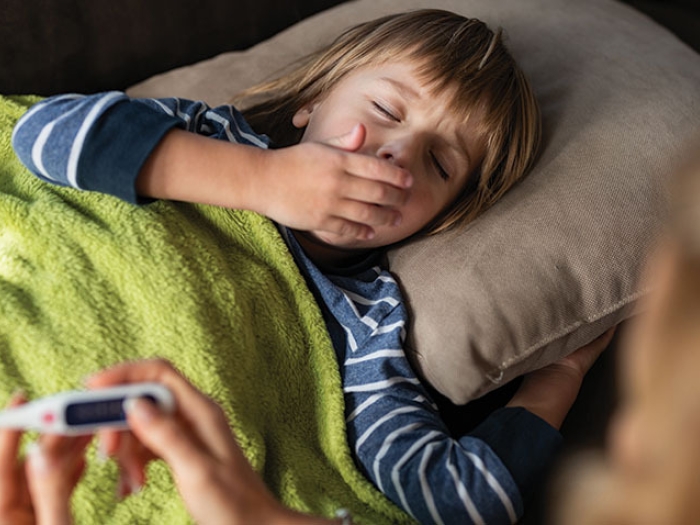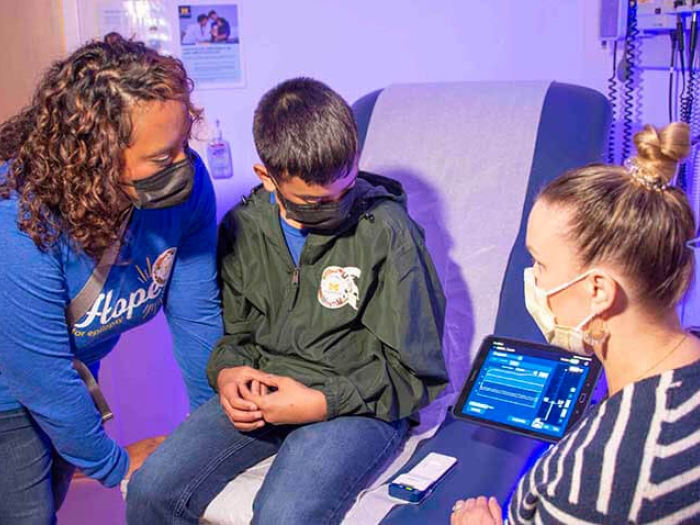Fathers of chronically ill children can face certain emotional challenges. Why it’s important to acknowledge them.
9:44 AM
Author |

As his daughter endured two heart transplants, countless rejection scares, a brief coma and even cardiac arrest, Brett Butcher's devotion never waivered.
But the emotional toll of watching his child go from an active soccer player and dog show participant to a frail hospital patient affected him deeply.
It also brought on a feeling of helplessness, something the otherwise involved dad had never experienced.
"As a father figure, I felt like I needed to 'fix' the problem; that's what fathers do," says Brett, 42. "There wasn't really anything I could fix, but I could learn as much as I can and try to figure out exactly what's happening."
Given that his child had been healthy, there was much to learn.
Brittney Butcher was diagnosed in 2008 with dilated cardiomyopathy — a condition where the heart becomes enlarged and cannot pump blood efficiently. She had been fatigued and unable to keep down food for several weeks prior, but the disease came on without warning.
"It was a whirlwind," says Brett.
The 10-year-old was rushed to C.S. Mott Children's Hospital, where she received a new heart just one week after going on the transplant list and stayed for 29 days.
Beyond the particulars of Brittney's immediate care, he worried about providing for his family in the long term.
"I was very stressed about bills — how I was going to pay the mortgage and afford to not be working?" says Brett, a seventh-grade math teacher. "I just needed to drop everything and revolve and focus on my little girl."
Such external burdens, he knows, can be common for many dads of chronically ill kids.
But Brett also understood the importance of voicing his concerns and asking for help.
Looking to others
The Butchers, who live in Owosso, Michigan — about 70 miles north of Mott — relied on meals and fellowship from Brett's co-workers during the extended hospital stay. His wife, Jennifer, a supervisor for a fast-food franchise owner, also got help from her employer.
"They sent groups of people down a couple times a week to visit and give me that sense of normalcy," says Brett, who also made frequent phone calls to his best friend throughout to ease his anxiety.
Sharing one's emotions with other compassionate adults during a time of crisis is key, says Tanya Smith, MSW, a social worker in the pediatric liver transplant division at Mott.
Fathers, however, may struggle with this.
"When it comes to seeking ongoing therapeutic resources or shorter-term verbal support, I definitely think it's more common for moms," says Smith, who helps counsel families during a child's transplant process. "The most common role that I see dads playing is gathering information."
Which is why she recommends parents — male and female — take advantage of a peer-mentoring service facilitated by the Patient & Family Centered Care Program at the University of Michigan Health System. Participants are matched with other parents who can share their experiences and perspective.
For Brett, networking with other families while at Mott became an important form of support.
"We made quite a few friends at the hospital," he says. "They're living the experience you're living. Even if it's not a heart transplant, they get it."
Strength at home
Brittney's path to better health hasn't been easy.
Her heart, which experienced a major rejection in 2011, went into cardiac arrest two years later — with Brett performing CPR on Brittney until paramedics arrived.
She received a second transplant in 2014.
The Butcher family, which includes 14-year-old Michael, has persevered. One recent success: Brittney's trip to indulge in extreme roller coasters at the Cedar Point amusement park in Sandusky, Ohio.
"Just in the past six months she's gotten her energy back," Brett says. "Everything's so normal."
For the family, normalcy means a Father's Day backyard cookout. And Brittney, now 18, will enroll as a nursing student this fall at the University of Michigan-Flint.
Brett, meanwhile, continues to encourage dads of ill children to remain proactive while acknowledging their own emotions.
"You don't have to fix it yourself; the doctors and nurses and all of the fellows and kids that are going through their schooling are helping," he says. "Don't be afraid to ask questions — and let people know how you're feeling.
"In the past, I've tried to keep things bottled up inside and not make it about me. But you can't keep it all inside and still function properly."

Explore a variety of health care news & stories by visiting the Health Lab home page for more articles.

Department of Communication at Michigan Medicine
Want top health & research news weekly? Sign up for Health Lab’s newsletters today!





